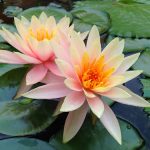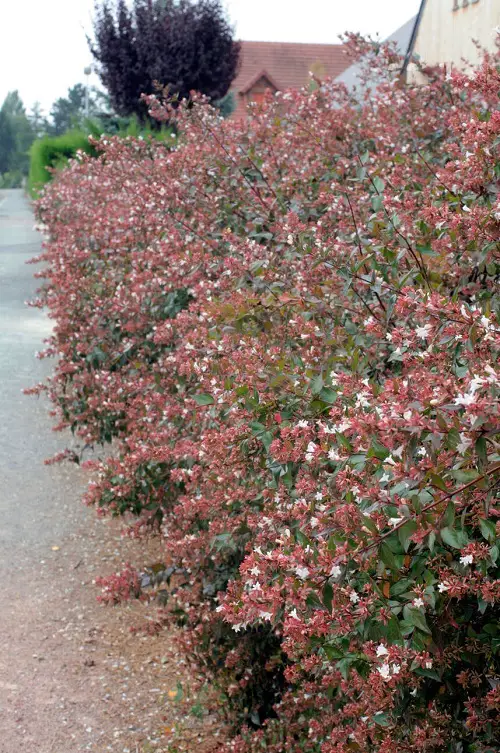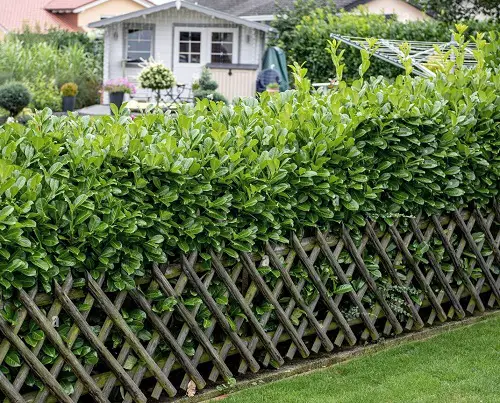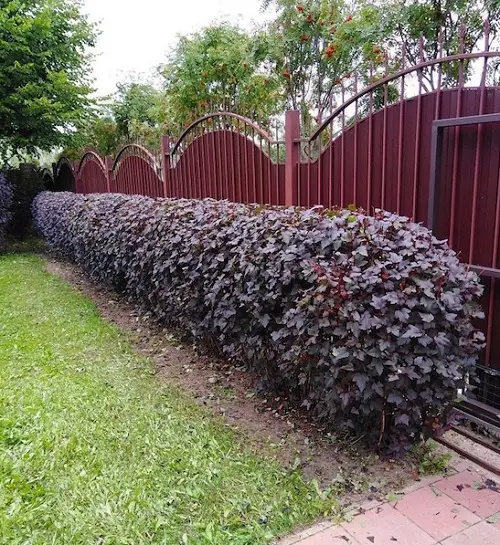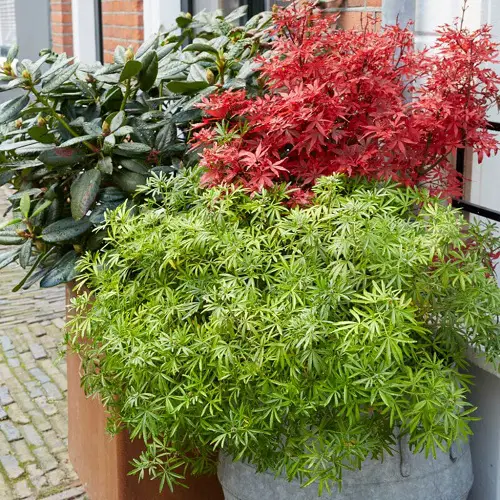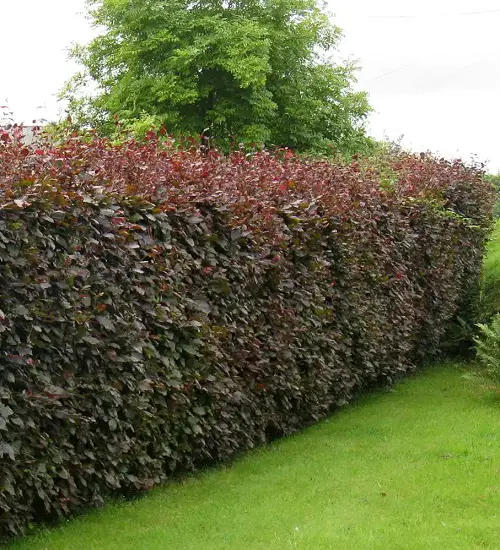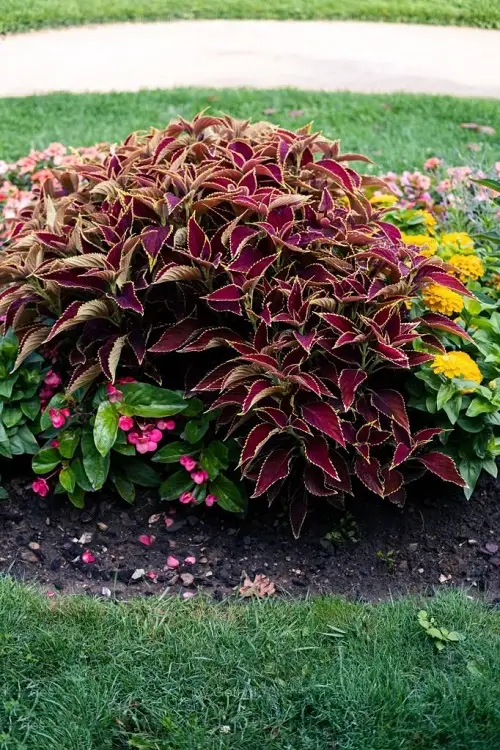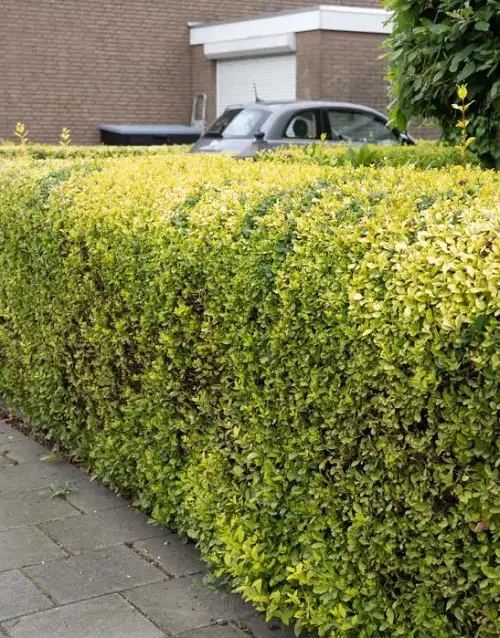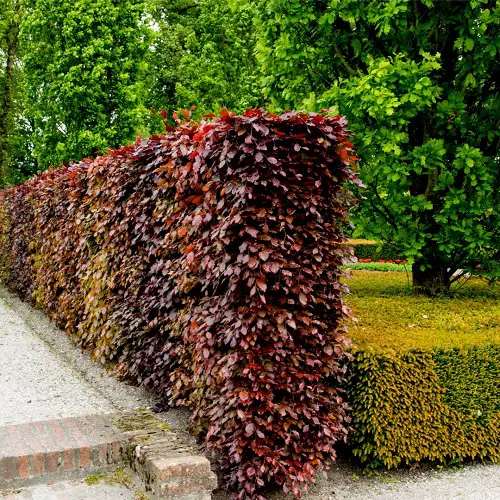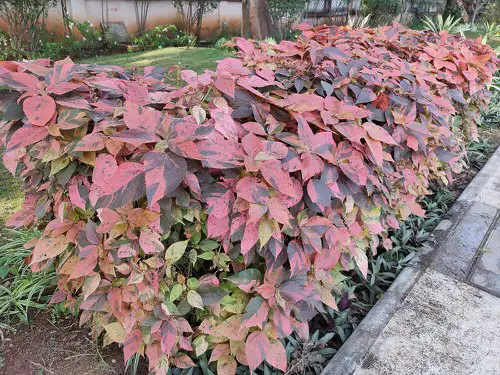Check out the Best Colorful Hedge Plants and create attractive boundaries or screens with these vibrant colors.
With these Colorful Hedge Plants, you can add a decorative feature to your landscape. They combine beauty and functionality. So, pick the best one for you!
Best Colorful Hedge Plants
1. Glossy Abelia
Botanical Name: Abelia x grandiflora
USDA Zones: 6a-9b
Glossy Abelia is grown as a hedge plant due to its robustness and ease of growth. Its arching branches with small glossy dark green leaves and white to pink blooms will create a visually appealing backdrop.
2. Juneberry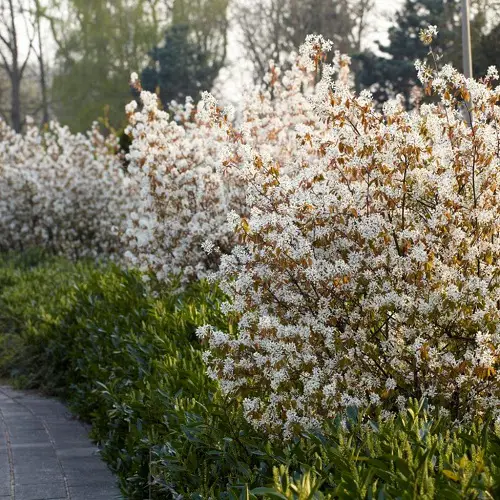
Botanical Name: Amelanchier lamarckii
USDA Zones: 4-8
It is a beautiful tree with fragrant flowers in early spring that later give way to edible berries in June. You can grow it as a tall hedge. Plus, birds love the berries, making it perfect for bird gardens.
3. Cherry Laurel
Botanical Name: Prunus laurocerasus
USDA Zones: 6a-8b
Cherry Laurel is an evergreen shrub native to Europe that grows erect up to 20 feet tall and 10 feet wide. Its dense foliage makes it ideal for creating privacy hedges.
4. Forsythia 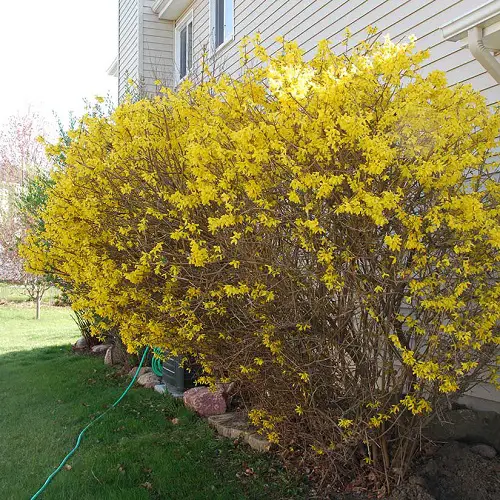
Botanical Name: Forsythia ‘Happy Centennial’
USDA Zones: 5-9
When fashioned into a small hedge, Forsythia is suitable for sunny woodland gardens or charming cottage settings. It offers both beauty and functionality.
5. Golden Mop False-cypress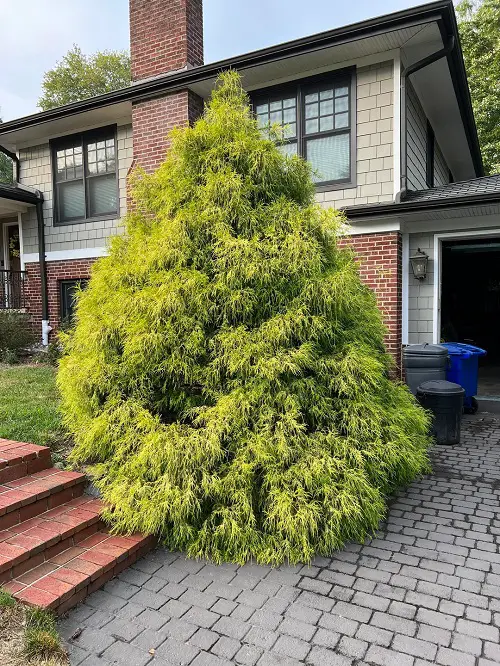
Botanical Name: Chamaecyparis pisifera ‘Golden Mop’
USDA Zones: 4a-8b
The Golden Mop False Cypress is a compact plant with reddish-brown hues and whip-like foliage that maintains color year-round. It is perfect for patio plantings or low hedges.
6. Japanese Barberry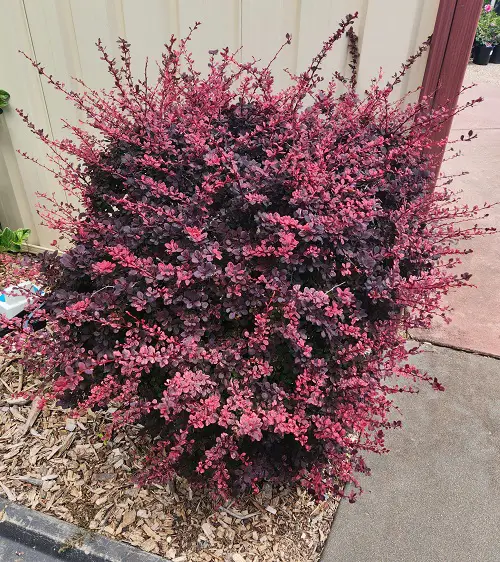
Botanical Name: Berberis thunbergii
USDA Zones: 4-8
The Japanese barberry, with its spiny, broad-rounded form and foliage, provides a natural barrier. It offers privacy and security while adding visual interest to your area.
7. Fraser Photinia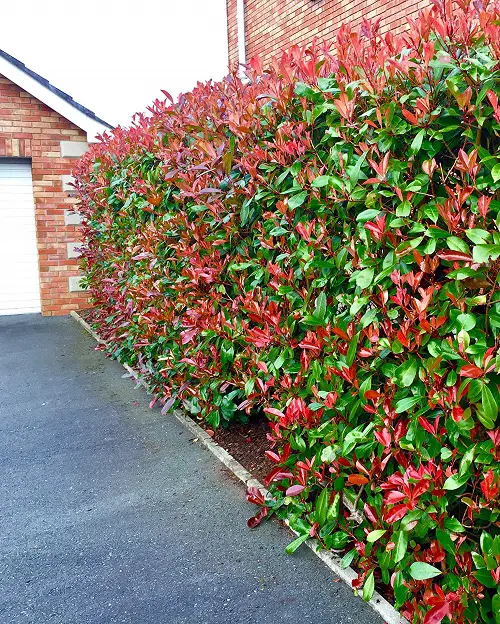
Botanical Name: Photinia × fraseri ‘Red Robin’
USDA Zones: 7-9
Fraser Photinia is a more compact variety and is known for its bronze-red new leaves. It elevates the hedge into a focal point of beauty in any landscape.
8. Common Lilac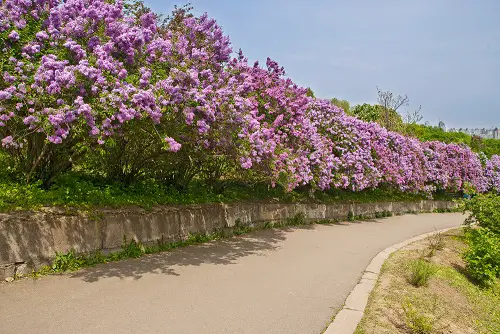
Botanical Name: Syringa vulgaris
USDA Zones: 3-7
Plant multiple Lilac plants in a row, and soon, you’ll have tubular flowers in shades ranging from lilac to purple that sway gently in the breeze.
9. Japanese Yew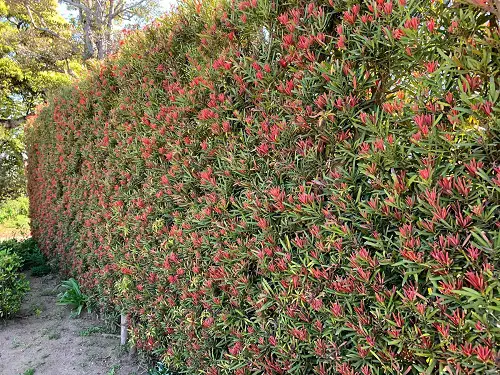
Botanical Name: Taxus cuspidata
USDA Zones: 4-7
Are you still looking for colorful hedge plants that grow easily? This evergreen shrub has spiny needles and red fruits that can be pruned into a formal hedge. In its native habitat, it can reach towering heights of up to 50 feet.
10. Ninebark
Botanical Name: Physocarpus opulifolius ‘Diabolo’
USDA Zones: 8-9
When it comes to colorful hedge plants, Ninebark can do no wrong! It boasts deep purple foliage and grows to a height of 4-8 feet, creating a dense hedge.
English Lavender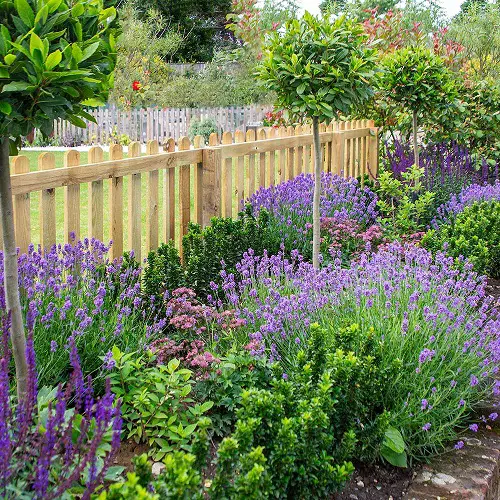
Botanical Name: Lavandula angustifolia
USDA Zones: 5-8
English Lavender is a semi-woody plant with gray-green leaves reaching 1.5-3 feet. Its purple flowers and foliage make it an excellent low hedge!
Learn about Growing Lavender from Cuttings
11. Weigela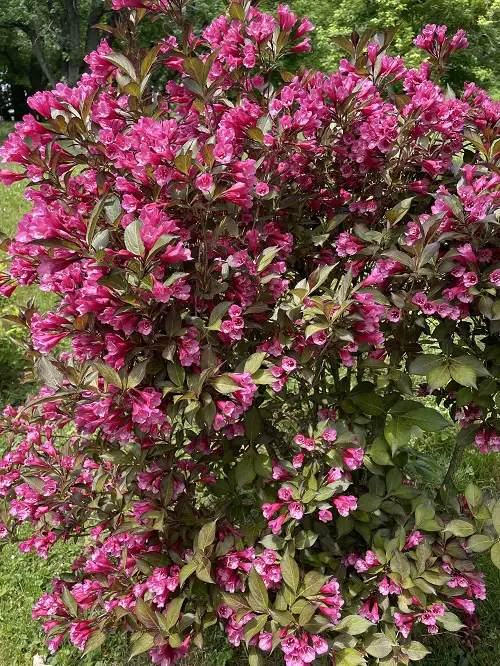
Botanical Name: Weigela florida
USDA Zones: 4–8
This cultivar blooms profusely in the spring season, as its name ‘Florida,’ meaning ‘freely flowering,’ shows. Its flowers attract hummingbirds and can be used as property margins.
12. Loropetalum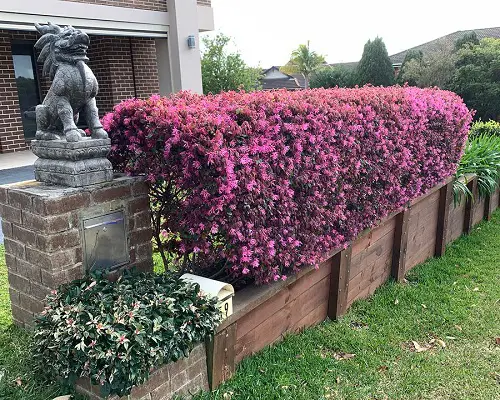
Botanical Name: Loropetalum chinense
USDA Zones: 7-10
Loropetalum varieties like ‘Burgundy’ or ‘Ruby’ have deep purple leaves and white to pink flowers, making them splendid choices for a colorful garden hedge.
13. Japanese Maple
Botanical Name: Acer palmatum
USDA Zones: 5-8
It is native to Japan and is a small deciduous shrub that is famous for its attractive foliage and shape. You can plant them alone or in groups around your house and at the edges of your garden, too!
14. Heavenly Bamboo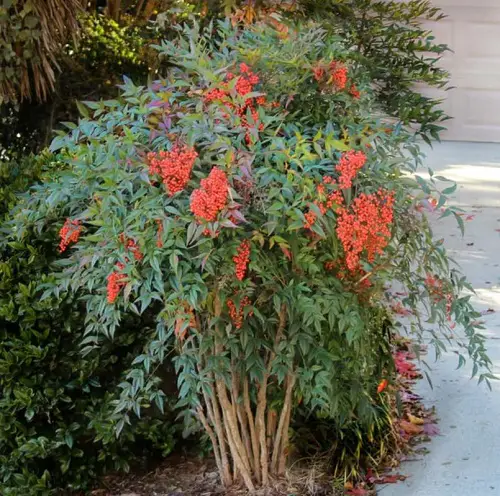
Botanical Name: Nandina domestica
USDA Zones: 6a-9b
Heavenly Bamboo, with its bi- to tri-pinnately, evergreen leaves that turn purplish-red in fall, adds color throughout the year. Its graceful appearance can create an appealing hedge for your garden.
Check out everything about Heavenly Bamboo Care
15. Dwarf-Winged Burning Bush
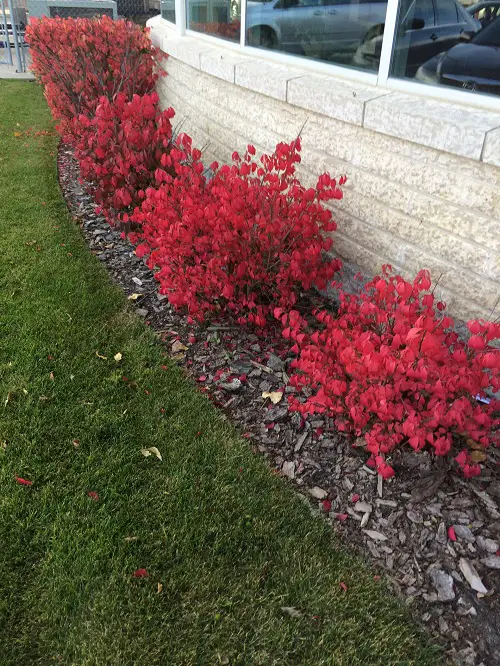
Botanical Name: Euonymus alatus ‘Compactus’
USDA Zones: 4-8
Dwarf-Winged Burning Bush has bright red foliage that looks like a burning fire, and its branches are spread flat-topped, making it a beacon of autumnal brilliance. Plant it, and it will never disappoint you as a hedge.
16. Boxwood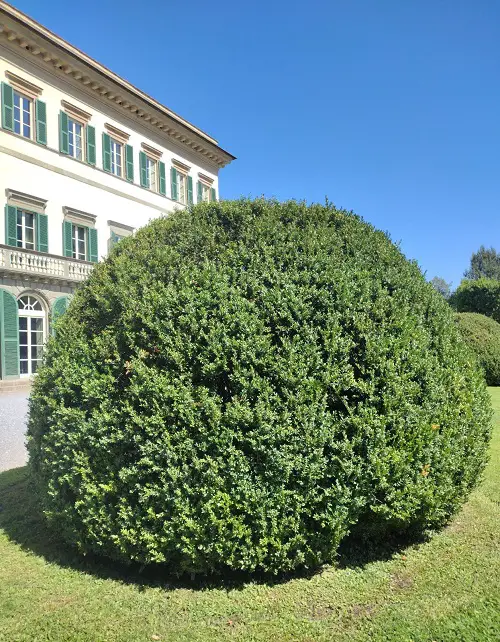
Botanical Name: Buxus sempervirens
USDA Zones: 5a-8b
Boxwood is a low-maintenance plant with shallow roots that can survive in various soil and light conditions. It is generally used in mixed beds, particularly in topiary, but you can form a narrow hedge as well.
17. Red Twig Dogwood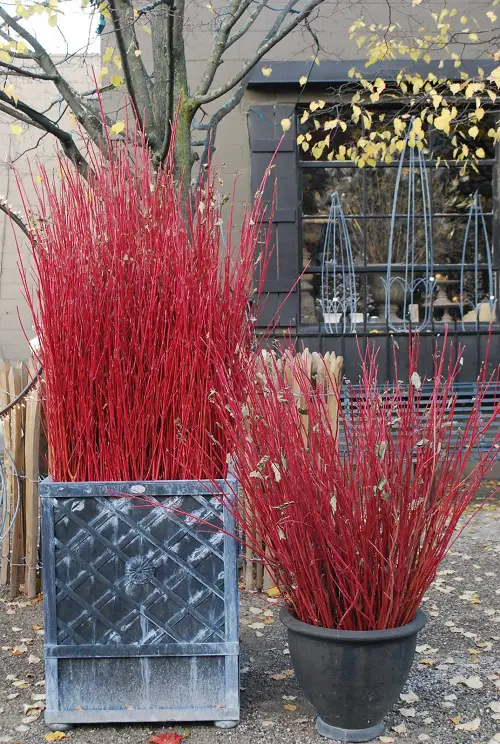
Botanical Name: Cornus sericea
USDA Zones: 3-8
It has the ability to combat soil erosion along streams or ponds and graces the areas with its upright-spreading form and red stems. Also, you can check here some red twig dogwood landscape designs.
18. Purple Leaf Sand Cherry
Botanical Name: Prunus x cistena
USDA Zones: 3-8
Purple Leaf Sand Cherry features reddish-purple foliage through the summer months and can reach up to 6-10 feet in height, making a backdrop for other plants in the hedge.
19. European Cranberrybush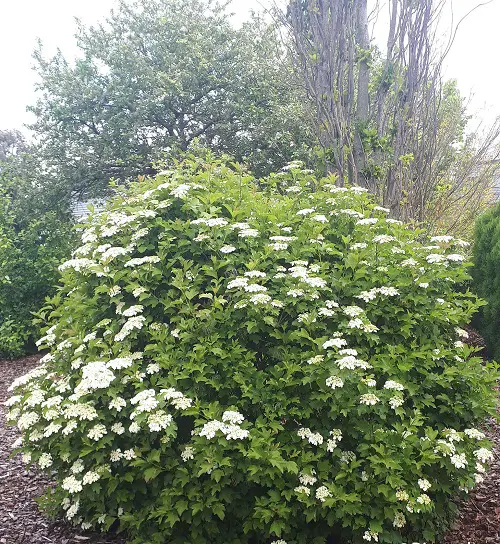
Botanical Name: Viburnum opulus
USDA Zones: 3-8
European Cranberrybush is native to Europe, N. Africa, and Asia. Its delicate white flowers, followed by red berries in the fall, make it a valuable asset to your garden.
20. Coleus
Botanical Name: Plectranthus scutellarioides
USDA Zones: 10-11
Although typically used as annuals, some coleus cultivars offer multi-colored foliage in irregular patterns, making them a unique option for colorful hedges. You can also look at some of the most beautiful purple coleus varieties.
21. Red Chokeberry
Botanical Name: Aronia arbutifolia
USDA Zones: 4-9
Red chokeberry is native to Eastern North America and adaptable to dry or wet habitats. It has clusters of white to light pink flowers and is perfect for mass planting in borders or woodland areas.
22. English Lavender
Botanical Name: Lavandula angustifolia
USDA Zones: 5-8
English Lavender is a semi-woody plant with gray-green leaves reaching 1.5-3 feet. Its purple flowers and foliage make it an excellent low hedge!
Learn about Growing Lavender from Cuttings
23. Smoketree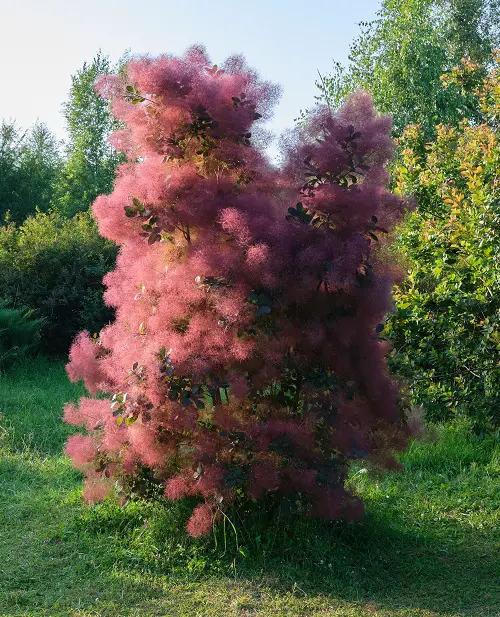
Botanical Name: Cotinus coggygria
USDA Zones: 5-8
Smoketree is a loose-spreading deciduous shrub with shallow fibrous roots, delicate blooms, and lush foliage. Plant it in sunny spots to enjoy its beauty and charm.
24. Purple Hop Bush

Botanical Name: Dodonaea viscosa ‘Purpurea’
Haven’t you had enough of the best colorful hedge plants yet? Well, there are more! This one, with its rapid growth upright branches adorned, works well for creating boundaries.
25. Variegated Golden Privet
Botanical Name: Ligustrum ovalifolium ‘Aureum’
USDA Zones: 5-8
If you are looking for a resilient or robust hedge option, this golden green foliage plant is the best pick! It is hardy and can thrive even in windy coastal locations.
26. Cotoneaster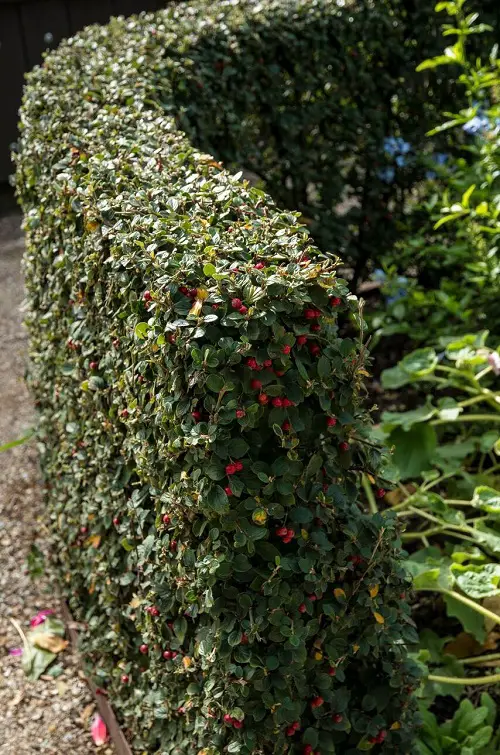
Botanical Name: Cotoneaster
USDA Zones: 3-11
Cotoneaster shrubs have small, glossy leaves and produce clusters of colorful berries in red, orange, or black. Their dense growth and adaptability make them apt low-maintenance hedges.
27. Hydrangea

Botanical Name: Hydrangea macrophylla
USDA Zones: 6-9
Some hydrangea cultivars, such as ‘Nikko Blue’ or ‘Endless Summer,’ have large, showy blooms in shades of blue, pink, or white. The lush foliage creates a beautiful and vibrant hedge, bringing a touch of beauty to your outdoor space.
28. Copper Beech
Botanical Name: Fagus Sylvatica ‘Purpurea’
USDA Zones: 4-7
Copper Beech is an attractive hedge plant with burgundy leaves and small yellow-green wildflowers. It grows moderately and can reach a height of around 60-80 feet and a width of 40-60 feet on maturity.
29. Copperleaf
Botanical Name: Acalypha
USDA Zones: 10a-11b
Copperleaf is a fast-growing shrub with heart-shaped leaves that are 4-8 inches long. The foliage mixes green, purple, crimson, pink, or orange. It can create a dense boundary in your outdoor space.
30. Elderberry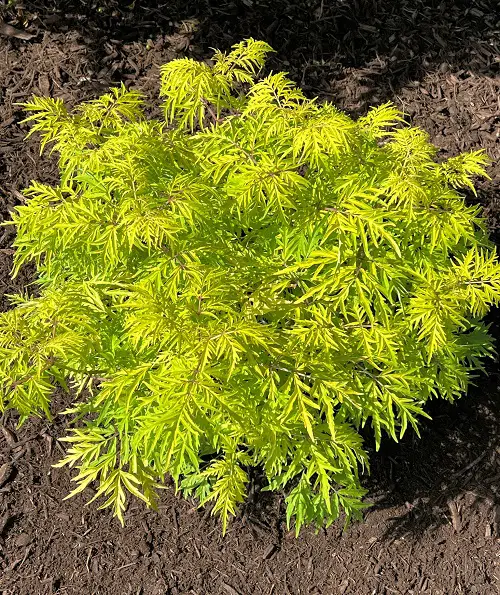
Botanical Name: Sambucus racemosa ‘Smnsrd4’ Lemony Lace
USDA Zones: 3-7
Elderberry is a small, bushy plant with bright yellow-green leaves and small white blooms in spring, later becoming red berries that birds love.
31. Japanese meadowsweet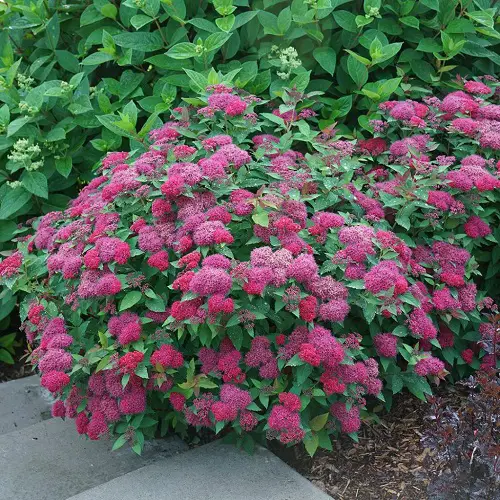
Botanical Name: Spiraea japonica
USDA Zones: 3-8
Also known as Japanese spirea, it is a deciduous shrub with oval leaves and small pink blooms in clusters that grow up to 4-6 inches tall, making it a perfect choice for making low hedges for walkways.

